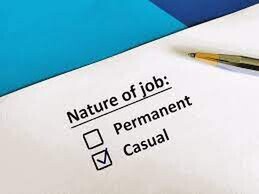Over summer you may be expanding your workforce, whether it be with pickers and packers to help you on your orchard, or workers for your café or restaurant.
You may be hiring part-time or casual workers and people from overseas. Before you do, it’s a good time to understand the different types of employees and your legal obligations.
Understand the difference between casual, fixed-term and part-time employees
‘Casual’ workers and fixed-term employees are both different to part-time workers, and sometimes people mix all these terms up.
A ‘casual’ employee isn’t defined in law but usually refers to a situation where the employee has no guaranteed hours of work, no regular pattern of work, and no ongoing expectation of employment. They only work when it suits you both. If you hire a casual worker, you must make this clear in their employment agreement.
A fixed-term (temporary) employee’s employment will end on a specified date or when a particular event occurs. A fixed-term employee might be someone who is brought in to replace another employee on parental leave, to cover a seasonal peak or to complete a project. There must be a genuine reason for the fixed term.
Whether you’re considered to be part-time or full-time depends on how many hours you have to work. Employment law doesn’t define what full-time or part-time work is, but full-time work is often considered to be around 35 to 40 hours a week.
Employment rights and responsibilities apply to all employees, but the way in which annual holidays, sick and bereavement leave are applied can vary.
For all types of employees, it’s important to keep accurate records of wage and time, and holidays and leave so that you can make sure leave entitlements can be correctly calculated.
Your responsibilities when hiring
Every employee must have a written employment agreement. As an employer, you must meet certain requirements, including:
providing an employee with a written copy of their agreement, and
keeping a copy of the employment agreement (or the current signed terms and conditions of employment).
You must keep an 'intended agreement' even if the employee hasn’t signed it.
The minimum rights of an employee are the responsibility of the employer. They are legal requirements that apply even if they’re not in the employment agreement. As an employer, you can’t reduce these or trade them off for other things.
Ensuring employees have the right to work
Employers have a responsibility to make sure that an employee can work for them legally.
If you are a registered employer and have the person’s consent and information, you can check their immigration status to see:
whether they have the right to work here,
the conditions of their visas, and
the expiry date.
You can do this using VisaView – an online system for employers provided by Immigration New Zealand.
Don’t forget that employment rights apply to everyone, even if someone is working illegally.

